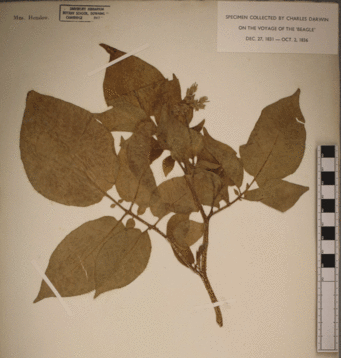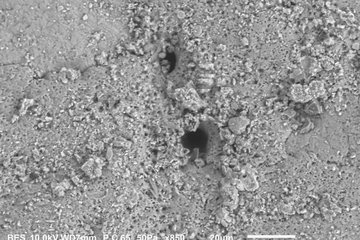"Darwin's writings are the Bible of evolutionary biology"
An interview with Detlef Weigel about his discovery that cells prevent particularly important genes from mutating
For many decades, evolutionary biologists assumed that the changes in DNA, known as mutations, occur irrespective of any consequences for the organism. A team led by Professor Detlef Weigel, Director at the Max Planck Institute for Biology in Tübingen, has disproved this long-standing doctrine in a study that has attracted attention around the world. In this interview, Weigel explains the implications for our understanding of evolution.

Professor Weigel, what is fundamentally new about your findings?
Detlef Weigel: What our study has revealed that mutations do not occur with the same frequency in important genes and in less vital genes – there is no even distribution of mutations – and why this is the case. We now know that non genetic segments in thale cress (Arabidopsis thaliana) DNA mutate twice as often as genetic segments and that the mutation rate of less important genes is almost 50 percent higher than that of those that are essential for the plant’s survival. That may not sound like much, but the difference is actually huge.
This asymmetrical distribution is the result of chemical changes within the DNA and its associated proteins, which regulate the cell’s natural repair mechanisms in such a way that any damage to particularly crucial segments of the DNA is repaired more frequently than in the rest of the genome. It’s as if these genes say to the cell: "Hey, I’m really important, please take special care of me!"
Does this explain so-called fossil genes, by which I mean genes that have hardly changed over millions of years and are found in very similar forms in even the most diverse of organisms?
Weigel: It’s at least part of it. We’ve known for years that certain segments of the genome seem to mutate less frequently than others, but we always assumed that it wasn’t possible to observe many of the mutations in these segments because they were rapidly culled by natural selection processes. Mutations in some segments are so harmful, or even lethal, that the affected organisms quickly vanish from the population, which is enough in itself to explain the observable distribution of mutations.
But, we excluded natural selection as the sole influence in our study, because the plants in our laboratory were cultivated under ideal growing conditions, which enabled all of them, even the ones with harmful mutations, to survive. In spite of that, however, in many cases, mutations did not occur in the important DNA segments.
What are the practical consequences of your findings?

Weigel: We now know why it is rather difficult to alter certain plant genes and, it might be possible in future to override the mutation protection mechanism, which would enable us to create new crops with improved properties. Our findings have also been cited in various papers as evidence of the ineffectiveness of so-called CRISPR-Cas gene scissors, although this is not quite true: the gene scissors are so effective that a mutation rate that is 30 percent lower is barely statistically significant.
In principle, it should even be possible to prevent human genes involved in the aetiology of diseases from mutating, which would reduce the development of cancer and other gene-based diseases.
Your research was focused on thale cress, a popular plant model for molecular biology studies: is this an isolated case or have you discovered a widespread phenomenon?
Weigel: I assume that all organisms can protect particularly important areas of their genomes from mutations. A few years ago, various colleagues studied the distribution of mutations in a bacterium and made very similar findings, but were not able to explain them. Most evolutionary biologists doubted their results, as they appeared to be completely at odds with the prevailing doctrine.
The dogma in question being that mutations in the genome are totally random? Does this refute one of the fundamental tenets of Darwin's original theory of evolution?

Weigel: Not at all. Darwin left the question of the distribution of mutations open and it doesn't even matter for his theory of evolution, nor are we claiming that selection is superfluous. The assumption that mutations are distributed on a purely random basis was postulated by generations of later researchers, the so-called Neo-Darwinists, primarily because it gives the theory of evolution a particularly elegant slant.
So, our findings do not change how evolution works, it just makes it more complex to deal with.
Was Darwin wrong about anything at all? Surely there was a lot he couldn't have known at that time?
Not really. He was an extremely meticulous observer of nature who relied on a great deal of intuition to come up with the correct explanations for his observations. Almost everything he postulated was later shown to be correct in principle, which is why his writings have become a kind of Bible of evolutionary biology. One of the potential results of this is that we might not always ask as many fresh questions as we really should.
How has your study been received within the scientific community?
Weigel: We were aware that our findings contradicted one of the key assumptions held by the overwhelming majority of evolutionary biologists for decades, so we braced ourselves for a fierce backlash, but our data is sound and others seem to be far less surprised and to have expected this result. That kind of thing does happen in science once in a while: a basic assumption is made in relation to a given subject – it’s a kind of blind spot that nobody ever questions. In retrospect, you wonder why you didn't think of it much earlier.














